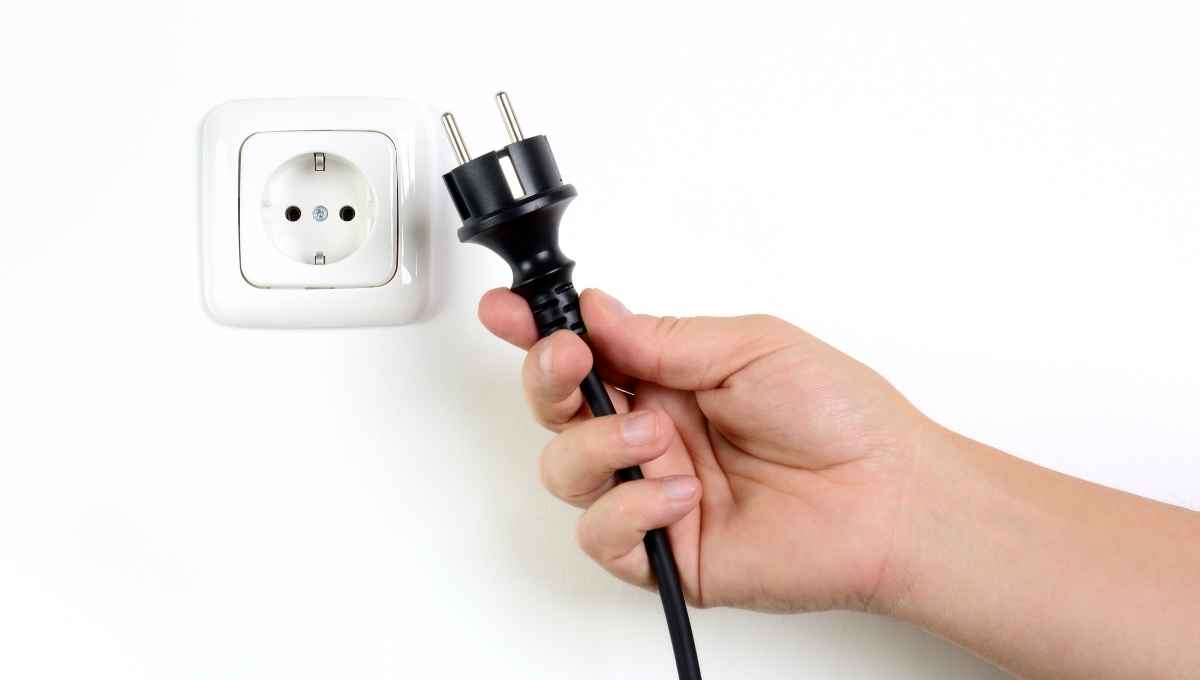Is It Illegal to Share Electricity With Your Neighbors?

While it may seem like a good idea, supplying energy to people outside your household can be tricky and dangerous. Did you even check to see if sharing electricity with your neighbors is illegal? Not knowing these issues can be detrimental to you. What if you become liable?
You can share electricity with your neighbors as long as you follow proper safety protocol established by most state laws and the National Electrical Codes. If you find out your neighbor is using your electricity without permission, you are entitled to sue them for theft.
So, in this article, we’ll speak about the rules around sharing electricity, how you can sell solar energy, what to do if your neighbor is stealing electricity, and the general rules about proper electricity safety.
This post contains affiliate links from Amazon and other stores. This means Yard Blogger may earn a commission should you make a purchase using any of our links. Please refer to our full affiliate disclosure policy for full details.
Here’s a Quick Pro Tip!
You can share your electricity with your neighbor, but you must use the proper tools. Additionally, if you suspect your neighbor is stealing electricity from you, you should make arrangements to protect your outlets.
With that being said, we believe these products can help you achieve all your energy-saving, and sharing, goals:
1. Safe Outdoor Extension Cord – The right cord for outdoor purposes!
2. Smart Meter Guard Cover – Protect your meter to avoid having someone tampering with it!
3. Sense Energy Monitor – Track the usage of your electricity and other stuff!
It’s Electric!
While some situations require you to cooperate with your neighbors, sharing your electricity without proper guidance or authorization can be a huge mistake.
So, let’s learn about electric matters below!
Can I Sell Electricity to My Neighbors?
You can’t sell electricity to your neighbors unless you have a solar system and a license allowing you to supply energy to others. However, this is only feasible when you register as an energy supplier, and the process varies by state.
Besides, it’s not always legal and most troublesome for utility companies. Therefore, it’s best to check your local laws if you are considering this option as a method to save or gain some money.
Moreover, some states require you to undergo a long and sometimes tedious registration process to enlist as a utility supplier.
Also, you can’t sell electricity if the utility company isn’t involved.
Is It Illegal to Run an Extension Cord From One House to Another?
Whether it’s legal or not to run an extension cord from one house to another depends on the state where you live and how far the house is. Some circumstances may make the act illegal, while others are permissible only if temporary.
For example, a factor that may influence its legality is if your neighbor permitted you to run the extension cord from your house to them. Additionally, where the extension cord is located, and if it’s temporary or permanent.
Extension cords shouldn’t be permanent, as their intent is for temporary use, such as connecting necessary appliances during certain hours of the day.
And the National Electrical Codes prohibit them from being used in hazardous situations.
Additionally, you can share your electricity with your neighbors if your house is next to them. However, under no circumstance should you attempt to connect your electricity to your neighbor’s house across the street!
Can I Share My Electricity With My Neighbor?
You can share your electricity with your neighbor, but you must be cautious of local ordinances and safety rules. Some actions may be deemed illegal, while others are permissible only for a short time.
You can share your electricity with your neighbor as long as you know what hazards you have to avoid.
For example, as the NEC specifies, you cannot put the extension cord in a wet space or through walls or fixtures.
And they can’t be permanent, as this can pose a serious threat to your property and your neighbor’s. You can suffer an accident if you don’t follow safety rules when using extension cords.
Can I Share Electricity?
You can share your electricity if you comply with the local ordinances of your city or state and if you are following the rules necessary to avoid fire hazards. If you don’t follow these rulings, you risk committing illegal action.
What you can do to share your electricity is to use a good extension cord suitable for the outdoors. Never use indoor extension cords for outdoor purposes since this can be a danger to the home.
Additionally, make sure to understand the safety standards you must follow to avoid putting you and your neighbor in a difficult and dangerous situation.
Can I Run an Extension Cord Across the Street?
You can’t run an extension cord across the street. Doing so is not only hazardous to you and your neighbors but also illegal because of the dangerous conditions these would bring. For more details, you should consult with the NEC’s regulatory codes.
Extension cords shouldn’t be anywhere compromising, including the street, the sidewalks, and driveways, because they can pose a serious threat to your neighborhood.
Thus, if something happens and everything catches fire, you’d be liable for the damages the cord caused.
You might also enjoy our post on Can You Bury an Extension Cord?
How Can I Tell if Someone Is Connected to My Electricity?
You can tell if someone is connected to your electricity by looking at your utility bill or checking your meter measurement. If any of these show irregular usage, you should consult with an expert that can give you answers after an investigation is done.
To check your meter, you have to turn off the power to your house. Then, after waiting a considerable amount of time, check the reading.
If you notice that the reading still acts as if someone was using electricity, someone is probably stealing electricity from you.
Sometimes, energy theft is detected through the utility bill.
For example, if your bill has increased tremendously, without any valid explanation or circumstance that may have caused it, someone is likely connected to your electricity.
However, be careful before aiming to accuse somebody. Sometimes, meter readings can be wrong, and utility bills vary per weather season.
So, make sure to make a thorough investigation before doing anything else!
How Do I Know if My Neighbor Is Using My Outlets?
To check if your neighbor is using your outlets, turn off everything inside your house and reduce energy consumption. Check your meter reading. If it continues to run despite everything turned off, someone might be tapping into your electricity.
However, you need to turn off the breakers from your panel. Then, you just need to turn off the mains, so there’s no electricity going into your house.
After this, you can check the meter and see if there are any issues with its reading.
Selling Energy to Make Some Cash
Now that you know about the hazards you can suffer by incorrectly connecting electricity, we can talk about how people sell their energy to earn money and save on utility bills. Let’s debunk it.
Can You Make Money Selling Energy?
You can make money selling energy, but it will depend on the circumstances, the utility company that provides you electricity, and the state laws that apply to you. Additionally, you must understand what the utilities mean by “selling.”
You can sell energy by:
- Creating your own utility company after undergoing government requirements.
- Selling the excess energy produced by your solar panel system to the utility grid using a net metering system.
- Selling SRECs (Solar Renewable Energy Credits.)
In some states, “selling energy” means accumulating enough credit to lower utility bills.
This is done by net metering, under which the amount of electricity a solar panel owner overproduces throughout the day is measured.
While many articles claim that you can use this method to “sell” energy, you’re not. You’re just receiving the credit from the utility company for the excess energy you produced.
This means it’s just lowering your bill and not giving you any extra income.
While some states have rules like those mentioned above, others allow you to sell energy legitimately. Specifically in states that don’t depend on net metering. So, they use Solar Renewable Energy Credits.
Nonetheless, these also have limitations since there are many rulings regarding who qualifies for this and who doesn’t.
Therefore, you should check in with your state laws and utility company for more information.
How Do You Sell Excess Electricity?
To sell excess electricity, you must first contact your local electric utility company and sign an application form. Also, you must have solar panels following state guidelines. Remember: selling excess energy will highly depend on state laws that apply to you.
Of course, this process varies by state. For instance, to start selling excess energy in North Carolina, you must call the utility company and fill out an application form subject to review by the electric utility company.
In this case, N.C state works with net metering. So, if you overproduce energy, it will count as credits. Therefore, it will lower your electricity bill significantly.
Can I Make Money by Selling Solar Power to the Grid?
You can make money by selling solar power to the grid. Still, you must be educated about the state laws, net metering regulations, and other issues before considering doing it. While others only rely on net metering, some use Solar Renewable Energy Credits.
To understand a bit better, net metering is a mechanism that credits solar panel owners for the excess energy they produce. With this system, homeowners are simply charged with what they use.
This quantity is named “net usage”.
Meanwhile, solar renewable energy credits are used to identify the quantity of solar energy produced and whether or not they meet state-level solar energy goals.
This is proof of how renewable your solar energy is.
So, whether net metering or SRECs are exclusive depends on the state.
While net metering only helps you save up good money on electricity bills, SRECs help you gain a solid passive yet steady income. Hence, their difference.
Can You Make Money Selling Electricity Back to the Grid?
It’s possible to make money selling electricity back to the grid in some states, but others only allow you to save money on your electricity bills. The amount of energy you save on electricity is often compensated as solar renewable energy credits.
Although you’re contributing to the utility provider, and hence you receive credits as compensation, the truth is that doesn’t count as selling.
You’d have to register as a utility service provider to sell electricity legitimately.
Legalities Concerning Electricity
We know what to avoid when sharing our electricity with neighbors and selling solar energy in exchange for credits. But, what is bypassing or meter tampering? And, how can this affect you? Learn more about it below.
Is Bypassing Electric Meters Illegal?
Bypassing electric meters is illegal because it can count as theft. Additionally, doing this can put your life and your neighbors at risk. Thus, it’s best to avoid this and act according to the law.
Bypassing is the act of connecting to the electricity without having a power utility involved nor by having the power usage measured with a qualified meter.
People do this to avoid paying utility bills, hence why it’s stealing and is highly punishable by law.
What Is the Punishment for Bypassing Electric Meters?
The punishment for bypassing electric meters can range from huge fines to at least one year of jail time, depending on the state where you committed the crime. Additionally, the culprit will have to pay all the accumulated bills and won’t have electricity until then.
However, the legal punishment is so severe that you could even face five years of jail time. And the estimated fines can easily go from $1,000 to $3,000, depending on the jurisdiction.
Is Meter Tampering a Crime?
Meter tampering is a crime and can also include meter bypassing, which can result in theft and, therefore it carries heavy legal liabilities. Therefore, we recommend that each person stays within the parameters established by their state’s law.
Just like meter bypassing, if someone is caught tampering with a meter, they can be subject to pay fines as high as $2,500, depending on the jurisdiction and the circumstances in which the crime was committed. This applies to water utilities, as well!
Is It Stealing Electricity to Use Someone’s Extension Cord?
Connecting to someone else’s extension cord to get electricity without paying for it will likely be stealing. But, of course, this would only apply if you didn’t receive permission to use the extension cord. Also, there are other concerns involved.
Is the connection following the National Electric Code’s regulations? Is it safe?
If not, it may risk your and your neighbor’s life, as a fire can arise, and if anything else happens, you or your neighbor may be liable for damages.
What Is Illegal Tapping of Electricity?
Illegal tapping of electricity is intended to connect to an electric wire or tool that allows you to connect to the electric grid without any utility company’s consent. Therefore, it’s stealing, and you could face jail time if caught.
However, illegal tapping of electricity can also happen when someone is looking for ways to do it. For example, if they hire someone to do it for them or look for information on how to do it.
This is defined, for example, in California law.
Can Smart Meters Detect Electricity Theft?
Smart meters can detect electricity theft, although not necessarily precisely. However, they can still do so by detecting the power usage. Additionally, the smart meter reports any power casualties to utility companies.
Experimental results in a Mitsubishi Lab 2013 study showed that the meters could detect a difference between stolen power usage and not-stolen power usage.
So, we can safely assume that smart meters are convenient for detecting theft.
You might also enjoy our post on Can Your Neighbor Steal Your Electricity?
Related Questions
How Do You Tell if Your Neighbor Is Stealing Your Cable?
You can tell if your neighbor is stealing your cable by paying attention to the signal quality you’re receiving. Sometimes, the signal will pause for a few seconds before continuing without any other reason. Thus, this is one thing to look for.
Furthermore, you can also do this by checking the cable lines of your home. The cable lines that give you a signal should only be directed to your home and nowhere else.
You’ve probably found your culprit if you notice an extra line that leads somewhere else.
You can also call your cable company and begin an investigation process. First, they will measure the use of your signal to detect whether it becomes interrupted or not.
Plus, they’ll send a technician per your request to test your internet and cable connection.
Can My Neighbor Pass Their Power Cables Over My Land?
The only way your neighbor can pass their power cable over your land is if they previously had an easement over the space of your property. Without this, they can’t pass their power cables over your land without your explicit permission.
An easement agreement allows homeowners to grant their rights in specific cases. In the example we’re mentioning here, you would have to grant your neighbor an easement for them to be able to pass the cable over your land.
However, if they attempt to do it without permission, they may do something illegal, such as trespassing or other similar acts.
The problem with easements is that they tend to be permanent unless the person who benefits from them renounces them.
This means that, even though you just bought the property, they still have those rights because the previous owner allowed it, and thus, it still applies today.
What Happens if You Rig Your Electric Meter?
If you rig your electric meter and get caught, you’ll probably end up paying huge fines and even jail time. Rigging your meter counts as tampering with your meter, which is illegal in most states and can even subject you to more than $2,000 in fines.
Let’s look at Virginia law.
The code of Virginia establishes that any person that tampers with metering devices or intentionally prevents them from working can be liable for restitution for the value of the services that have been tampered with.
This means that if you dare tamper or rig your electric meter, you risk paying huge fines for violating the law, and you’d have to pay every single unpaid bill for all the time you used the service while stealing electricity.
Final Thoughts
According to the National Electric Codes, you can share your electricity with your neighbor, but you have to be careful when following safety protocols.
Moreover, you can “sell” energy by overproducing it with your solar panels. The rules for this vary depending on the state. Thus, you should check them out before beginning.
Additionally, connecting to your neighbor’s electricity can count as theft. Thus, it’s best to avoid doing this and stick to the letter of the law.
The same applies when we speak about meter tampering or bypassing. It’s not cool, so don’t do it.






